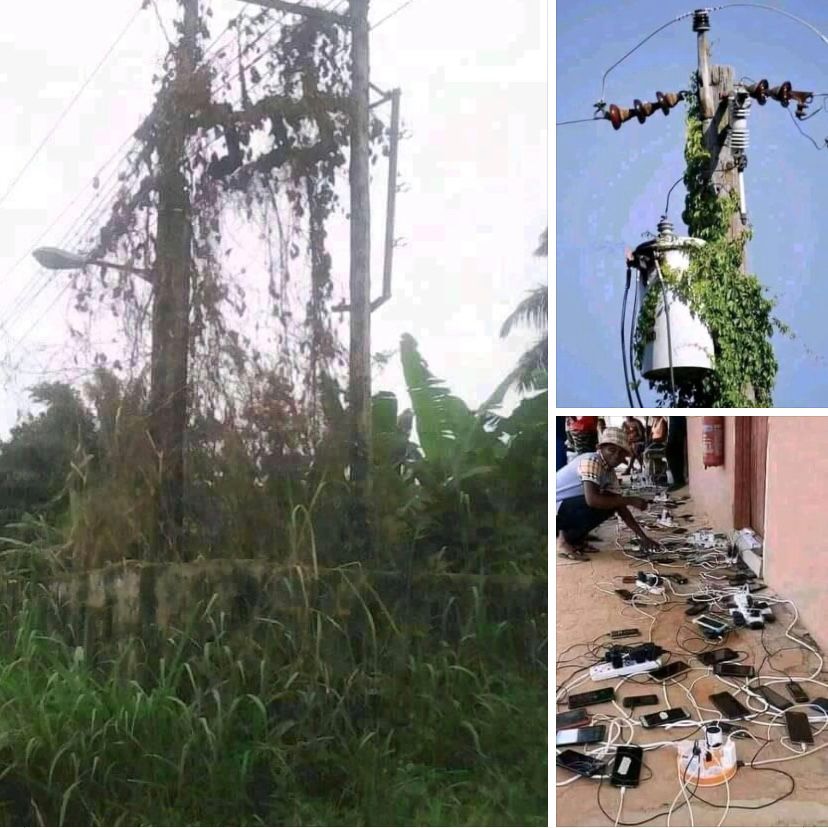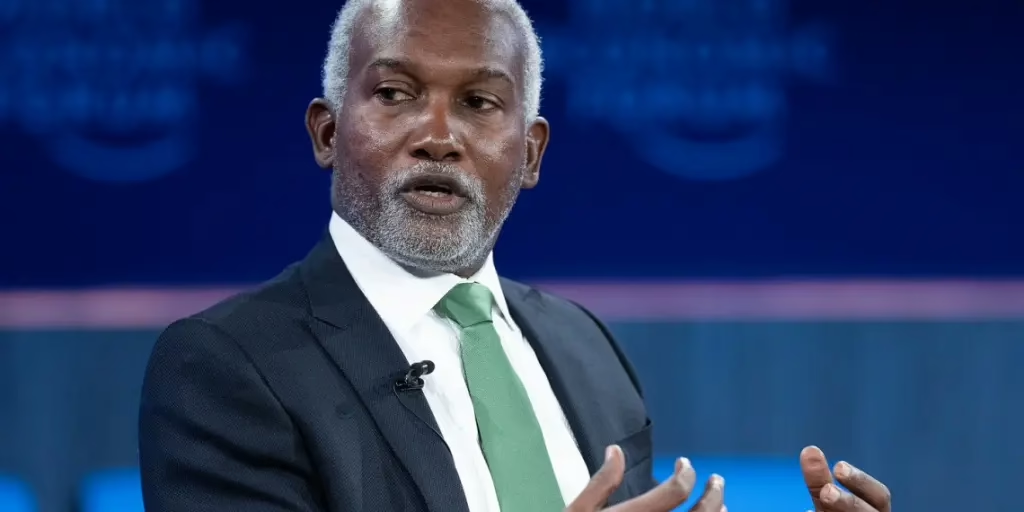The earth was formless and void, and darkness ruled upon the surface of the deep’ is a biblical account of prehistoric time that is just as apt for parts of Ondo State in 21st century Nigeria, Adewale Momoh reports.
Just as the Bible in its first chapter laid emphasis on the importance of light over darkness, from North to South, East to West, across various Nigerian homes, one of the first sentences a toddler tries to mutter is “Up NEPA”. This resonates across households, irrespective of status, anytime electricity is taken or restored.
Though the National Electric Power Authority (NEPA) had decentralised into Power Holding Company of Nigeria (PHCN) and then to private-owned distribution companies, the word is still the only lexicon that is fully understood by the literate class and laymen in the country.
However, this cannot be said for residents of Ondo State residing in the Southern Senatorial District, who had been without power from the national grid for over 14 years.
Communities in four council areas of the district – Okitipupa, Ilaje, Irele, and Ese-Odo – have been without electricity for between 10 and 15 years over alleged indebtedness to Benin Electricity Distribution Company (BEDC).
With this situation considered pathetic, inhabitants of the communities in the council areas have no doubt been reconfigured to see electricity from the national grid as a luxury and no longer a necessity.
Following the development, generators have been competing for spaces in various households and have no option other than to acclimatise to the attendant effects of noise pollution, among other health hazards.
Also, some residents have resolved to use alternative power sources such as solar and inverters, but business owners are lamenting that large and energy-consuming machines could not be used within the axis.
According to the BEDC, the action was taken for the communities to pay up the outstanding debt of about N2 billion, which was allegedly incurred by some households within the affected communities since the days of NEPA and PHCN.
In some of the numerous meetings held with top officials of the state government towards finding a lasting solution to the crisis, the BEDC claimed that when the privatisation of the power sector was formalised on February 21, 2013, assets and liabilities were handed over, hence the resolve that all outstanding consumer debts from the days of PHCN and the preceding company must be paid.
After a series of meetings by residents and stakeholders, BEDC trimmed the debt from N2 billion to millions of naira as against the appeal for a total write-off of the debt to begin the billing from when BEDC took over.
After the stalemate in measures to resolve the issue, a series of protests rocked various parts of the communities as the BEDC insisted that the affected local governments be cut off in an alleged strategy believed to force non-debtors to compel debtors to pay up.
Following the development, the prolonged power outage in the axis has had far-reaching consequences on the lives and livelihoods of its residents, as it has dealt a severe blow to the local economy, hindering commercial activities, and causing disruptions across various sectors.
With an area still yearning for development, small businesses have been forced to operate at reduced capacity, while some have suspended operations entirely.
The inability to power essential machinery and equipment has resulted in decreased productivity and financial losses, exacerbating the economic woes of the affected local councils, with the situation deterring potential investors from exploring opportunities in the area and impeding the overall economic growth and development of the senatorial district.
Similarly, the blackout has had severe implications for healthcare facilities and public services in the senatorial district. Hospitals and clinics struggle to provide adequate medical care due to the lack of electricity to ensure proper refrigeration of vaccines, a situation that has continued to put lives at risk.
The education sector has not been spared from the adverse impacts of the blackout, as students of the tertiary institution situated in Okitipupa, Olusegun Agagu University of Science and Technology (OAUSTECH), have been facing significant challenges scheduling their academic activities.
Speaking on the development, the Coordinator of Bring Back Our Light (BBOL), a movement agitating for the restoration of power to the affected council areas, Olumide Akinrinlola, said the development had paralysed business activities in the councils, adding that crime rates had gone haywire amid darkness.
Akinrinlola said: “It has paralysed business activities and affected the social life of the people negatively. It has crippled the economic activities of Ondo South. Businesses no longer thrive like before. Some business centres have folded up, rendering thousands of people jobless. This is why the crime rate in Ondo South is on the rise.
“It has also reduced the standard of living of our people. Profit after tax is low since the cost of fueling generators is killing income. I know a lot of business owners who relocated their businesses from the district because of the blackouts. It is indeed a bad experience with untold hardship.”
According to the BBOL coordinator, the installation of the Erinje 132KV transmission line and 132/33KV substation is the only lasting solution to reconnect all the communities in the affected local governments to the national grid.
He maintained that the substation will not only provide adequate power to the affected local councils but will also revive economic development in the region.
“The hope of Ondo South getting electricity now lies in the installation of the Erinje transmission substation in Okitipupa LGA that would supply electricity to Ilaje, Ese-Odo, Okitipupa, Irele, and Odigbo LGAs. This is because the Transmission substation is the only lasting solution to reconnect all the communities in the five affected local governments of Ondo South to the national grid.
“Our previous source of power was the Ondo town transmission substation, and unfortunately for Ondo South, the only TCN 30 mVA transformer in the Transmission substation that we are dependent upon has had a faulty breaker for over seven years now.
“And the BEDC had already told our group (BBOL) that any attempt for them to transfer all locations into the only working TCN transformer that is supplying power to Ondo West and East, Ileoluji LGA, and others always resulted in severe voltage drops to the Ondo South axis, which caused very poor and no useful power (candlelight), and the same could not be sustained any longer according to them.
“Despite the partial repairs of damages in Ode Aye, Igbokoda, and some streets in Okitipupa, we still do not have electricity because they (BEDC) insisted that the only working 30 mV transformer in Ondo town can no longer power the overall communities in Ondo South anymore.
“Hence, many of the towns in Ondo South remained in darkness after the partial repair of electrical damages because of the depreciating condition of the only working 30 mV transformer in Ondo town, which the entire Senatorial District of Ondo South depends upon.
“This was why our group, the BBOL, which championed the struggle to restore power to the district, decided to collaborate with Senator Nicholas Tofowomo to follow up with the timely completion and installation of the Erinje Transmission substation as the only way out of the total blackouts in the district.
“The good news is that the Erinje transmission substation has now been completed, and it’s currently passing through the necessary technical tests to receive certification that everything is well-installed and in order before it would be handed over to the Transmission Company of Nigeria (TCN), who will, in turn, transmit to the powerhouse of the BEDC, who will receive and now distribute to electricity users.” He appealed to the BEDC to expedite efforts in repairing the damages inflicted upon the various affected communities.
“We cannot afford any further delays in the timely restoration of power to Ondo South. Let us avoid the creation of additional obstacles akin to the formidable walls of Jericho and the mighty River Jordan, which the Israelites encountered after their exodus from Egypt.
“The communities eagerly await the reinstatement of electricity, as it symbolises their liberation from the darkness that has enveloped them for far too long. It is my hope that BEDC recognises the urgency of the situation and swiftly takes action to rectify it. Together, we can overcome these challenges and embark upon a brighter future, where power is no longer a luxury but a fundamental necessity for progress and prosperity.”
However, for some of the residents of the district, they have been expressing mixed feelings as to the full restoration of power to the entire axis of the southern senatorial district.
According to them, residents should wait until electricity from the national grid is seen by residents before accepting the claims of the federal and Ondo State governments regarding electricity supply to the area.
One of the residents, Kayode Egbayelo, insisted that if truly electricity is switched on in the area, BEDC should be sanctioned for what he described as the deliberate act of the firm to cut off the affected communities from the national grid. He also added that the decision had affected the livelihood of residents, particularly those in need of electricity to power their businesses.
“Why must I bear the brunt of my neighbour’s iniquity when we are definitely operating different metres? Why must I pay for the inefficiency of PHCN? Why should I be made to suffer just because BEDC wants to make profit?
“Sequel to the blackout, how many jobs do you think must have been lost? What about lives during emergencies at hospitals within this area?
“And the industrious youths that have been rendered restless and restive due to the fact that this area makes Ondo State part of the Niger Delta? Students of the Olusegun Agagu University of Science and Technology, Okitipupa, how do they think they have been coping with this abnormality?”
While giving assurance that electricity will be restored in the affected council areas by December, the Commissioner for Energy and Mineral Resources in the state, Rasaq Obe, said all was set for the commissioning of the Erinje power plant.
“Unfortunately, we have a situation that you think should not be in place for this long, but that has been going on in Ondo South for almost 14 years. We have upped our budget for electrification for this year so that as soon as they commission the substation, we are to buy transformers. For the first installment, we are planning to buy like 50, and more will be purchased.
“The reason we are not doing that ahead of the commissioning is because of the historical vandalism in the neighbourhoods. If you go ahead and erect your poles, string your conductors, and come back there in another three months, you will wonder if you ever did anything.
“As for access to grid power in Ondo South, I have no doubt that by December this year nobody will remember that again. The connection will be before the end of the year; I know that they are working towards that.”
Credit: Culled From The Guardian Newspaper











Leave a Reply